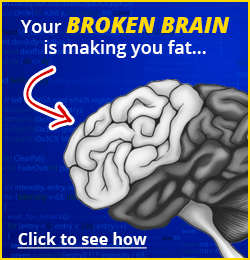Pros And Cons Of Doing Cardio For Weight Loss
Cardio is often promoted as an essential way of boosting weight loss results, but there are a lot of mixed messages out there about how beneficial it really is. Some people say resistance should be the main focus, while some people say that nutrition is all that really matters. So, what are the pros and cons of doing cardio for weight loss, and do you really need to incorporate it into your weight loss routine?
Pros Of Doing Cardio For Weight Loss
It is much easier to create a calorie deficit when you add cardio into your diet routine. Every single diet that you find, focused on losing weight, will factor in the calorie deficit for weight loss. When you do cardio, you burn off calories. And, the more calories you burn off, the more of a deficit you will create alongside a healthy, low-calorie diet.
Cardio makes you feel good thanks to the release of endorphins. This means that when you get done working out, you feel better about yourself and more motivated in your diet. Even if you have not lost weight, you feel thinner and more attractive, so choosing healthy options becomes easier.
Research has shown that cardio reduces hunger. It has been shown that during aerobic exercise, hormones in the body are affected and the appetite is suppressed. This means that cardio may have more impact on weight loss than just creating a calorie deficit.
“They found that the treadmill session caused ghrelin levels to drop and peptide YY levels to increase, indicating the hormones were suppressing appetite.” – Science Daily
Cons Of Doing Cardio For Weight Loss
Too much cardio can slow down your metabolism. Stress on the body can release hormones, such as cortisol, and this can cause all sorts of problems in the body, including a slower metabolism.
“…at least one study found that the addition of 6 hours per week of aerobic activity to a very low calorie diet caused a larger decrement in metabolic rate than the diet alone.” – Body Recomposition
If cardio is all you do for exercise, you can become skinny-fat as you lose weight. This is because it does not promote muscle gain throughout the entire body, which causes the toned appearance that people who lift weights get. Therefore, if being skinny is your goal, but you want to look healthy at the same time, cardio should not be your only focus for a healthy looking and feeling body.
Cardio activities put a lot of stress on joints, which can lead to knee and hip problems. Therefore, there is an increased risk of injury while doing cardio, and if injury occurs, you may not be inclined to keep living a healthy lifestyle that promotes weight loss. This is especially true if you feel your best after working out and depend on that feel-good mood to keep you motivated and on track.
Lastly, working out too hard can promote overeating. Many people will run for an hour and pat themselves on the back for burning off so many calories. But, when they get hungry later on, it can be easy to overeat with the excuse that they burned a ton of calories during their cardio session. Therefore, if cardio becomes an excuse for overeating, it can backfire for weight loss, and possibly even cause weight gain.
In the end, cardio can be beneficial to create a calorie deficit and stay motivated; however, excessive cardio can cause joint problems, body appearance issues, slow down your metabolism, and promote poor nutrition.



